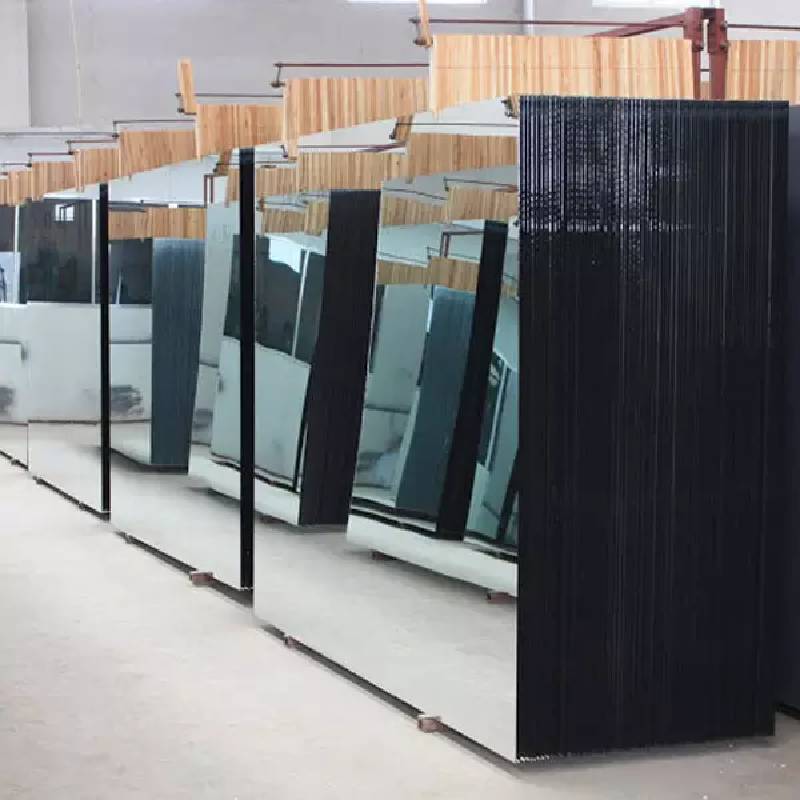Understanding Standard Float Glass Properties, Applications, and Advantages
Standard float glass is a widely used type of glass in various applications ranging from residential windows to commercial facades. Known for its clarity and uniform thickness, float glass is produced through a process that ensures high quality and durability. In this article, we will explore the characteristics, manufacturing process, applications, and advantages of standard float glass.
Properties of Standard Float Glass
Standard float glass is characterized by its flat surface and optical clarity. The glass is produced through a process that involves melting silica sand, soda ash, and limestone at high temperatures to form molten glass. This molten glass is then floated on a bed of molten tin, which allows it to spread evenly, resulting in a smooth surface and uniform thickness.
One of the key properties of float glass is its optical transparency. The glass has low distortion, making it ideal for applications where clarity is essential. Additionally, it is available in various thicknesses, typically ranging from 1mm to 19mm, which can be selected based on specific requirements.
Manufacturing Process
The manufacturing process of standard float glass begins with the preparation of raw materials. Silica sand, soda ash, and limestone are mixed and melted at around 1,700 degrees Celsius to form molten glass. This molten glass is then carefully poured onto a bath of molten tin, where it spreads and forms a flat sheet.
The cooling process is critical and occurs in a controlled environment, where the glass is gradually cooled over a period of hours. This slow cooling process, known as annealing, eliminates internal stresses in the glass, resulting in a product that is strong and durable.
Once the glass is cooled, it is cut into sheets of desired sizes and packaged for distribution. Some manufacturers may also provide added treatments such as anti-reflective coatings or laminating for enhanced properties depending on customer requirements.
Applications of Standard Float Glass
Standard float glass is used in a variety of applications due to its versatility. Some of the most common uses include
1. Windows and Doors Float glass is a popular choice for residential and commercial windows due to its clear visibility and insulating properties. It can be double-glazed or treated to enhance thermal performance.
standard float glass
2. Facades and Curtain Walls In modern architecture, float glass is a preferred material for building facades and curtain walls. Its aesthetic appeal and structural integrity make it suitable for large-scale projects.
3. Glass Furniture From coffee tables to shelves, float glass is often used in furniture design. Its clean lines and reflective quality add a touch of elegance to interior spaces.
4. Mirrors Float glass can be coated with a reflective backing to create mirrors, widely used in homes, bathrooms, and decorative applications.
5. Display Cases Retail environments frequently use float glass for display cases due to its clarity, allowing customers to view products without distortion.
Advantages of Standard Float Glass
The use of standard float glass comes with numerous benefits.
- Clarity and Aesthetics One of the most significant advantages is its high level of clarity, providing excellent visibility. This makes it appealing for architectural and interior design purposes.
- Customization Options Float glass can be easily customized in terms of thickness, size, and even surface treatments, allowing it to meet a wide range of customer needs.
- Durability Float glass is robust and capable of withstanding various environmental conditions. While it is not bulletproof, its strength is sufficient for most applications.
- Sustainability The manufacturing process of float glass has become increasingly efficient, with many producers investing in environmentally friendly practices. Additionally, float glass is recyclable, contributing to a more sustainable lifecycle.
In conclusion, standard float glass is a fundamental material in many industries, known for its clarity, uniformity, and versatility. Its manufacturing process, characterized by the float method, ensures that it maintains high quality while meeting diverse application needs. Whether it’s for architectural purposes, furniture, or decorative uses, float glass continues to be a preferred choice for its aesthetic appeal and functional benefits. As demand increases, ongoing advancements in technology will likely enhance its properties and applications even further.
 Afrikaans
Afrikaans  Albanian
Albanian  Amharic
Amharic  Arabic
Arabic  Armenian
Armenian  Azerbaijani
Azerbaijani  Basque
Basque  Belarusian
Belarusian  Bengali
Bengali  Bosnian
Bosnian  Bulgarian
Bulgarian  Catalan
Catalan  Cebuano
Cebuano  Corsican
Corsican  Croatian
Croatian  Czech
Czech  Danish
Danish  Dutch
Dutch  English
English  Esperanto
Esperanto  Estonian
Estonian  Finnish
Finnish  French
French  Frisian
Frisian  Galician
Galician  Georgian
Georgian  German
German  Greek
Greek  Gujarati
Gujarati  Haitian Creole
Haitian Creole  hausa
hausa  hawaiian
hawaiian  Hebrew
Hebrew  Hindi
Hindi  Miao
Miao  Hungarian
Hungarian  Icelandic
Icelandic  igbo
igbo  Indonesian
Indonesian  irish
irish  Italian
Italian  Japanese
Japanese  Javanese
Javanese  Kannada
Kannada  kazakh
kazakh  Khmer
Khmer  Rwandese
Rwandese  Korean
Korean  Kurdish
Kurdish  Kyrgyz
Kyrgyz  Lao
Lao  Latin
Latin  Latvian
Latvian  Lithuanian
Lithuanian  Luxembourgish
Luxembourgish  Macedonian
Macedonian  Malgashi
Malgashi  Malay
Malay  Malayalam
Malayalam  Maltese
Maltese  Maori
Maori  Marathi
Marathi  Mongolian
Mongolian  Myanmar
Myanmar  Nepali
Nepali  Norwegian
Norwegian  Norwegian
Norwegian  Occitan
Occitan  Pashto
Pashto  Persian
Persian  Polish
Polish  Portuguese
Portuguese  Punjabi
Punjabi  Romanian
Romanian  Russian
Russian  Samoan
Samoan  Scottish Gaelic
Scottish Gaelic  Serbian
Serbian  Sesotho
Sesotho  Shona
Shona  Sindhi
Sindhi  Sinhala
Sinhala  Slovak
Slovak  Slovenian
Slovenian  Somali
Somali  Spanish
Spanish  Sundanese
Sundanese  Swahili
Swahili  Swedish
Swedish  Tagalog
Tagalog  Tajik
Tajik  Tamil
Tamil  Tatar
Tatar  Telugu
Telugu  Thai
Thai  Turkish
Turkish  Turkmen
Turkmen  Ukrainian
Ukrainian  Urdu
Urdu  Uighur
Uighur  Uzbek
Uzbek  Vietnamese
Vietnamese  Welsh
Welsh  Bantu
Bantu  Yiddish
Yiddish  Yoruba
Yoruba  Zulu
Zulu 

